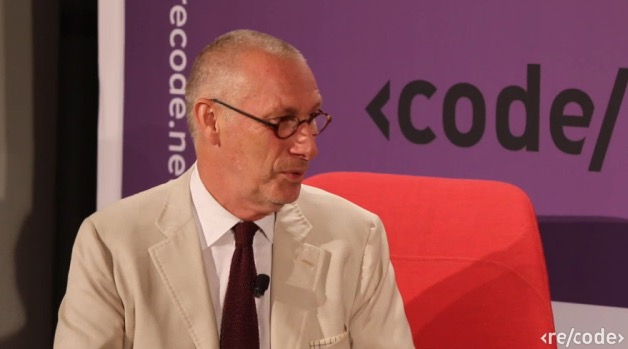Ad Disclosure
ESPN President Says ESPN Might Be Offered as Part of Streaming TV Service
By Kyle Scott
Published:
ReCode has posted their interview with ESPN President John Skipper, who I would describe as shockingly aware of changing viewing habits but slightly too steeped in old-school media lore to fully grasp them.
In an oustanding (and watchable) 30-minute intervew, Skipper talked about ESPN’s plan for streaming, cord cutters, subscription packages, the web, blogs, Twitch, Vine (sort of) and a lot more. It’s well worth watching, or just listening to, if you’re interested in the matter. But here are the highlights:
The sports powerhouse has signed on to sell its programming as part of a Web TV service that Dish wants to sell this year. It’s also in discussions with several other services that want to do something similar.
And ESPN is mulling another digital change as well: It is considering selling some sports programming over the Web directly to consumers, just like Netflix does.
These are big moves for the most powerful programmer in pay TV. They are also tricky, because ESPN still plans on making almost all of its money from the pay-TV system — so it wants to try adding digital revenue without upsetting the lucrative business it already has.
I would assume that Verizon, which says it will launch a Web TV service in 2015, would be one of those other services.
Regarding the Netflix-like subscriptions, Skipper was referring mostly to out-of-market MLS games– in other words, nothing… he was talking about nothing.
But the idea of ESPN being part of a streaming package is intriguing… until you realize that Skipper is hell-bent on getting at least $6 per month from every subscriber (which is what you’re paying for ESPN now through your cable bill, whether you know it or not). And therein lies the disconnect. Skipper, of course, can’t imagine anyone (anyone!) who wouldn’t want ESPN as part of whatever content package they have. The problem is, that while many people want and watch ESPN, many others (and I’d probably include myself here if I didn’t do this for a living), given the chance, probably wouldn’t spend $6 per month for it. Skipper talked about what a great value ESPN is… for cable providers and advertisers. When about the value it provides to consumers, he stuttered, literally, and double-spoke his way out of a question about people being fed up with indirectly paying for networks’ rising content rights agreements with leagues. I’m not passing those costs along to you, I’m passing them along to Comcast, he said (10:45 mark for this portion). Comcast, of course, passes them along to you. Semantics, BITCH.
Sports are valuable because they are about the last thing people watch live and with commercials. But that’s only a positive for leagues, networks and cable providers. For consumers, it kind of sucks. We’d all probably gladly pay $10 per month* if it meant we could watch a football or basketball game sans TV timeouts. There’s a whole generation of people, which Skipper acknowledged, that will never put up with watching commercials.
*I think I’d pay $100 for this.
This whole cord-cutting thing is impossibly complex, and the proposed solutions will likely include forced bundles. Dish, Verizon, Comcast, whomever are only going into this because they have no other choice. It won’t even be worth cutting the cord if you’re just paying the same amount to get video, some of which you don’t want, over still-less-reliable bandwidth instead of a cable pipe. At Apple’s event the other day, Tim Cook explained that mobile payments haven’t caught on because the focus has always been on protecting business interests and not on consumers. The same argument can be applied to cord cutting. I think it’s going to take an outsider to unify all the competing interests.
Full video after the jump.
Kyle Scott is the founder and editor of CrossingBroad.com. He has written for CBS Philly and Philly Voice, and been a panelist or contributor on NBC Sports Philly, FOX 29 and SNY TV, as well as a recurring guest on 97.5 The Fanatic, 94 WIP, 106.7 The Fan and other stations. He has more than 10 years experience running digital media properties and in online advertising and marketing.
